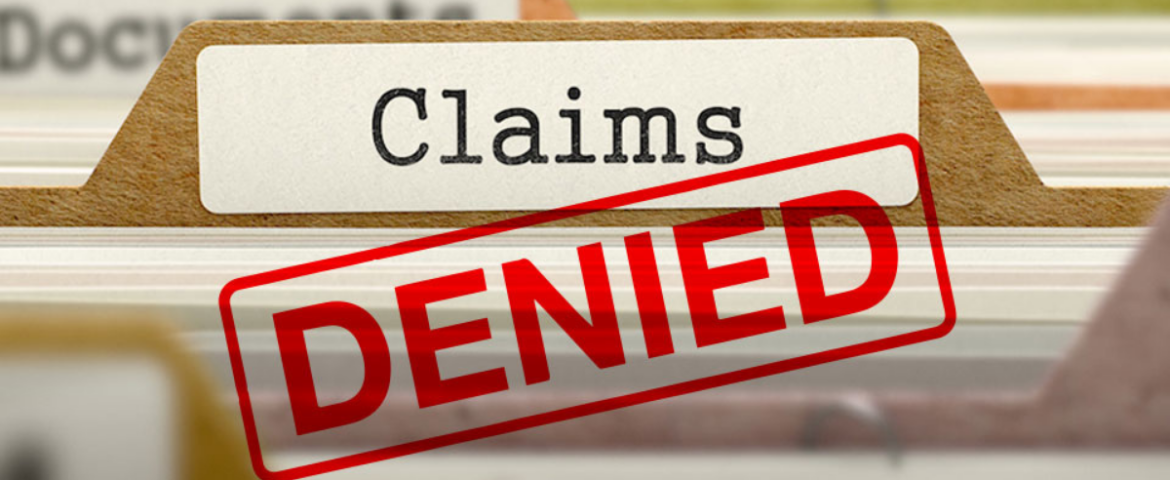When it comes to the hospital billing process, claim denials aren’t uncommon. Instead, about 10% of the submitted claims either get rejected or denied. But the thing is that ninety percent of these claim denials are preventable. This is because the process of medical billing and coding is very sensitive. Any small error could lead to denial or rejection.
Medical billing is considered tedious and complex because certain rules vary depending on the payer. Similarly, medical coding also requires great attention with respect to the various treatments received by the particular patient. So if any of the data doesn’t tally, or if there is a certain amount of documentation or information missing, this will put you through a process of claim denial management.
Hence to avoid such scenarios read the following procedures to minimize your claim denials and manage your cycle efficiently.
Verification of insurance and eligibility
An important step in the process of claim submission is verifying the insurance and eligibility of the particular patient. This validity is required as people keep changing jobs and plans as required. Hence it is always safe to verify the existing plan.
Ignorance of this step can cause trouble on your part. If the plan has been terminated or changed into one that doesn’t cover the services you have provided, it will delay your reimbursement process and increase your claim denial rates. There are serval tools to help you with checking the eligibility feature.
Ensure that the coverage of the plan has been discussed beforehand to avoid any doubts in the lateral process and that the billing process is completed smoothly.
Collection of accurate and complete patient information.
One of the most crucial steps that should always be cross-checked is patient data. It is extremely important to maintain accurate and complete data. Maximum claim denials occur due to improper patient information. Hence always cross-examine all data before submission.
Following are a few vital pieces of information that must be on your checklist:
- Patient name
- Date of birth
- Sex
- Insurance payer
- Policy number
- Group number (if required)
- Patient’s relationship with the insured
- Primary insurance (in case of multiple insurances)
- Date of accident
- Date of the medical emergency
- Date of onset
You have to ensure that all this information is present and that they are updated information. The most common missed points are dates of the accident, medical emergency and onset.
Keeping a proper eye over the medical records and ensuring having all the information covered saves you many claim denials.
Properly maintained documentation.
Properly maintained documentation is the key to further process. Clear documentation will make the process of medical coding much easier. The documentation must be maintained such that all required data related to the patient is covered. In addition, the information must be updated on a timely basis according to the service provided and the frequency of patient visits.
The documentation should include the specific details of patient history, diagnosis, and service offered to the patient. Any negligence in this area will result in insufficient data to support your claim and might affect medical coding accuracy.
Therefore maintain a proper documentation process to ease your claim submission.
Verifying and determining referrals, authorizations, and medical necessities.
Just prior authorization will not get you the payment. You also have to support the claim with medical necessities that should be filed within the deadline. If the claim isn’t supported with proper medical necessities, it is more likely that you will face claim denials. The claim must be submitted by the provider mentioned in the referral and authorization.
Perform the procedure or services with clear medical reasons and stay within medical necessities. Don’t miss out on the notes and records that support the services you have provided.
Accurate medical coding.
Medical coding is a sensitive area that requires precision. In addition, it requires following the current version of CPT, HCPCS, and ICD-10 codes which are frequently updated. Therefore doing medical coding from a professional is always preferable.
Since medical coding provides all the data right from diagnosis and treatment to discharge, it is important proper codes are mentioned for proper services provided. Any negligence in this area would result in claim denials due to medical coding.
Do not upcode or upbundle to receive payment. This could put you at serious risk. Therefore keep a close eye on the entire medical coding process.
Knowing about pandemic-related billing changes.
Many changes have been seen in the rules of billing services due to the pandemic. These changes have been addressed by the MGMA as it recommends putting claim denials and rejections for these changes on hold. This is so because one of the codes, CPT code 99072, is created to cover the costs of Covid-19 safety measures that include precautionary items like the PPE Kit. Hence, some commercial payers haven’t implemented this yet. Therefore, check thoroughly if the ones associated with you have implemented the same or not.
Study and Understand Rules of Particular payer.
Different payers have different rules. Therefore, you must study your payers and clearly understand their rule and regulation to avoid any future confusion. This includes the area that they cover. You also have to check on their requirements so that you can be prepared beforehand to make the process smooth.
Therefore, keep an eye on the eligibility of various insurance and particular payers’ requirements and study and understand their rules and regulations.
Ensure Claim is Submitted on time
Avoid missing the deadline. If this happens, the claim will be denied, and you will have to go through the process of denial management. Make sure you edit and update all the required information on the claim before the deadline. Monitor the deadlines of the claims and keep alerting the respected staff member.
Use technology to your advantage.
Nowadays, there are serval tools that help you ease the process of data collection. Many systems will alert you if you are missing certain required information. This will lessen your supervision of checking minute details and ensure proper documentation required for claim submission.
Proper Monitoring, analysis, and audit.
If you keep maintaining the following process, things will be way easier and more manageable:
- Monitoring the entire process (like deadlines and data)
- Analyzing the process (Knowing properly about payer or insurance and updating information accordingly)
- Auditing (Ensuring appropriate documentation and coding is maintained).
Following these steps will help you reduce your claim denials and ease your claim submission process.
All the points mentioned above are checkpoints you have to follow to improve your current claim submission process. They effectively reduce your claim denials and save you from denial management.






